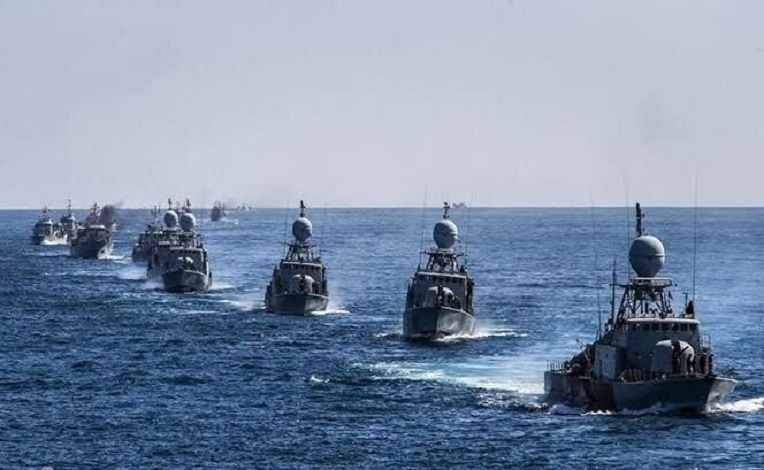
Joint Iranian-Arab naval exercises are indicative of an important geopolitical shift taking place in West Asia (the Middle East).
Qatar’s Al-Jadid news website reported on 2 June 2023 that Iran, Saudi Arabia, the United Arab Emirites (UAE), and Oman, in coordination with China, will form a joint navy to protect security in the Persian Gulf.
On 6 June 2023, Chinese Foreign Ministry spokesperson Wang Wenbin said that China is in favor of the concept of a joint naval force consisting of Iran, Saudi Arabia, the UAE, and other regional countries. During a press conference, Wenbin stated that the preservation of peace and stability in the Middle East’s Persian Gulf region is crucial for the prosperity of the countries and people in the area, and plays a vital role in global peace, the advancement of global economic growth, and ensuring a sustainable energy supply. Wenbin highlighted China’s commitment to playing a positive and constructive role in promoting peace and stability in the region.
This past March, China, Russia, and Iran held joint naval drills in the Gulf of Oman, near the mouth of the Persian Gulf. Top Saudi and Iranian diplomats also met in China for the first time in over seven years in April, confirming the reopening of their embassies and consulates and resuming direct flights and visa facilitation for citizens.
China, Iran, and Saudi Arabia each have interests in friendly relations. China purchases oil from the other two countries. Iran’s oil sales are limited by U.S. sanctions, so it needs the Chinese as buyers. Saudi Arabia’s crown prince Mohammed bin Salman wants to focus on national economic projects instead of expending resources on the war in Yemen.

TEHRAN – Iran’s initiative to launch a maritime coalition of countries of West Asia has reverberated across Asia, eliciting affirmative reactions from key powers in the continent.
Ties between China, Iran, Saudi Arabia, the UAE, and Oman are at odds with U.S. interests. The UAE recently halted its long-term participation in an American-led maritime security coalition in the Gulf region without formally notifying the U.S. That move followed Iran’s seizures of multiple oil tankers in the region and may have been driven by the sense that the U.S. is no longer able to adequately protect its Gulf “allies”.
Sources:
- Tehran Times, June 6, 2023. ‘China backs plans for regional naval alliance to preserve peace’. https://www.tehrantimes.com/news/485464/China-backs-plans-for-regional-naval-alliance-to-preserve-peace
- National Review, June 2, 2023. https://www.nationalreview.com/corner/persian-gulf-states-to-form-joint-navy-in-coordination-with-china/#:~:text=Iran%2C%20Saudi%20Arabia%2C%20the%20UAE,mouth%20of%20the%20Persian%20Gulf.
- Politics Today, June 8, 2023 . https://politicstoday.org/joint-naval-force-iran-saudi-arabia-uae-oman/
- Geopolitical Trends, June 17, 2023. ‘Persian Gulf’s Joint Navy with China – US Hegemony Coming to End?’ https://youtu.be/5lAHPF57e9E